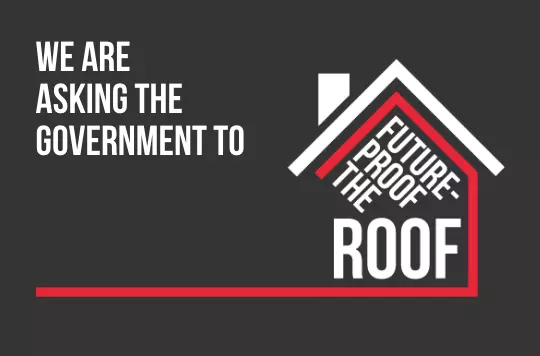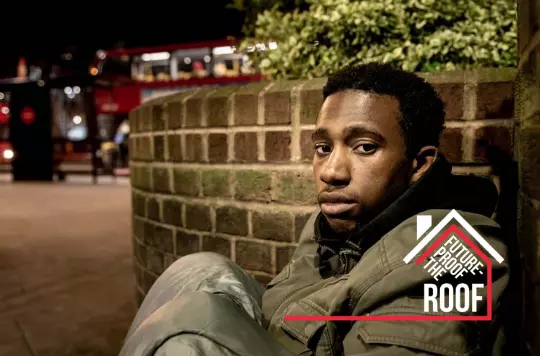Government plans to end rough sleeping could unravel within months
published on 11 Aug 2020
A new Salvation Army report outlines how homelessness and rough sleeping will soar if the Government fails to properly fund homelessness support services in this Autumn’s Comprehensive Spending Review (CSR).
The church and charity is warning that the economic consequences of the pandemic will increase rough sleeping and force families into expensive and unsuitable temporary accommodation, like bed and breakfast, as local authorities struggle to manage rising homelessness levels.
However, the report, ‘Future-Proof the Roof’ offers solutions to help sustain the amazing progress that’s been made in recent months, while helping to prevent growing rates of rough sleeping and homelessness in the future. Not only would this protect thousands of vulnerable people but investing in homelessness now will avoid spiralling costs in the future. Typical avoidable costs include expensive temporary accommodation, which just last year cost local authorities close to £1billion.

In July, the Government outlined how it would prioritise spending its approach to this Autumn’s CSR. The Salvation Army is concerned that the ‘tough choices’ rhetoric used in the announcement could mean that homelessness and rough sleeping services suffer from funding cuts, similar to those made by the damaging austerity budget of 2010.
Lorrita Johnson [1], The Salvation Army’s newly appointed Director of Homelessness Services, said: “It’s not too late to stop a massive increase in homelessness and rough sleeping caused by the current economic downturn. Bold government moves like the furlough scheme, temporary protection from eviction and emergency accommodation for rough sleepers saved lives and ensured thousands still had a home. However, our report demonstrates that if the Government mirrors the austerity approach it took during the last economic crisis, there will be dire consequences for rough sleepers, private renters and the economy as a whole.
“Our report Future-Proof the Roof outlines alternatives to the austerity measures that came into force post 2010 and could be reintroduced following the upcoming spending review. If they act now, the Government will protect thousands of people from either returning to the streets and prevent many children being raised in cramped and unhealthy temporary accommodation.”
Future Proof the Roof outlines a number of specific solutions including:
- Improve data collection. Unless we’re accurately able to assess the number of people rough sleeping, their needs and household type, the level of investment will never accurately match the level of need. Introducing CHAIN [3] (Combined Homeless and Information Network) style systems in urban areas with high levels of demand will help with this.
- Commit to a sustained level investment to build on the progress made during the outbreak of Covid-19. After years of underinvestment throughout the 2010s, the Government must commit to at least maintain the rate of investment in 2020/21 across the course of the current parliament. That’s £686m annually for the next three to four years.
- Use the upcoming CSR to begin implementing a new approach to investment in homelessness and rough sleeping. For example, in addition to stabilising levels of investment over the course of the current parliament, the Government should look to introduce a simple fiscal rule that if rough sleeping figures are stable or increasing, investment cannot be reduced, or we risk undoing any progress made and people returning to the streets.
- Provide a steady supply of suitable homes. Build on the excellent ‘Next Steps Accommodation Programme’ by acquiring homes from a range of sources to meet the urgent need with close to 15,000 people requiring new homes. This includes large numbers of one-bedroom properties to ensure schemes like Housing First are sustainable and introducing a new Empty Homes Programmes for people with experience of rough sleeping and new construction techniques to improve the supply of modular homes.

Graeme Myall, 46, was a successful truck driver, earning a good annual salary, but after a close bereavement his mental health suffered. Graeme then lost his job and was evicted by his landlord due to severe rent arrears, finding himself homeless.
He was housed at The Salvation Army’s James Lee House Lifehouse in Warrington – a residential centre for homeless people.
He said: “The Salvation Army provided accommodation which gave me a level of independence and security. There were people there to talk to, they actually listened, and gave me advice where appropriate. They supported me to do the right things.
“The Salvation Army helped me create a plan for the immediate future with what I wanted to achieve. They help you to realise what you want in life.”
After James Lee House, Graeme went to live with his mother, and is now living in private rented accommodation.
Additional information
Following a manifesto pledge by the Government to end rough sleeping by the end of the current parliament, The Salvation Army commissioned WPI Economics to devise a new approach to investment in the homelessness and rough sleeping system capable of delivering on this ambitious commitment. In the lead up to the Comprehensive Spending Review in the Autumn of 2020, the report uses up-to-date analysis to layout a framework for this new approach, taking into account the effects of Covid-19 and how the progress made during the pandemic through the ‘Everyone In’ initiative can be sustained over the long-term.
[1] Lorrita Johnson joined The Salvation Army as Director of Homelessness Services in July 2020 from a previous appointment as the Strategic Lead, Housing Solutions for Thurrock Council. Here she had overall management and leadership of the Homelessness Service including the Council’s Social Housing Allocation Scheme.
[2] 6,000 people were reported by emergency accommodation survey data as rough sleeping on 16 April at the start of the Covid-19 pandemic as opposed to 4266 official rough sleeping count for 2019
[3] CHAIN is a multi-agency database recording information about people sleeping rough and the wider street population in London. The system, which is commissioned and funded by the Mayor of London and managed by St Mungo's, represents the UK's most detailed and comprehensive source of information about rough sleeping.
CHAIN allows users to share information about work done with rough sleepers and about their needs, ensuring that they receive the most appropriate support and that efforts are not duplicated. Reports from the system are used at an operational level by commissioning bodies to monitor the effectiveness of their services, and at a more strategic level by policy makers to gather intelligence about trends within the rough sleeping population and to identify emerging needs.